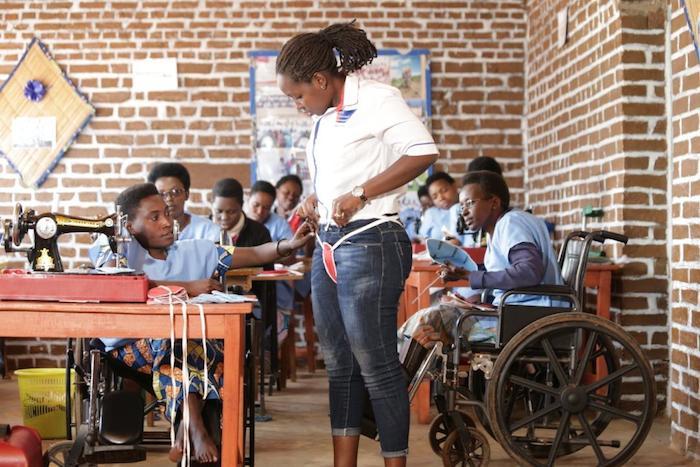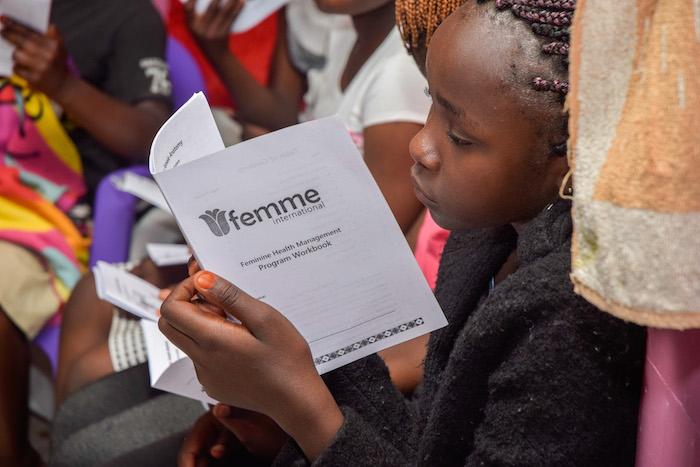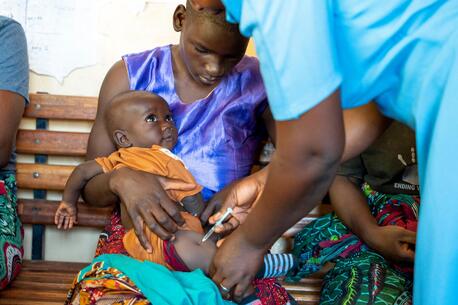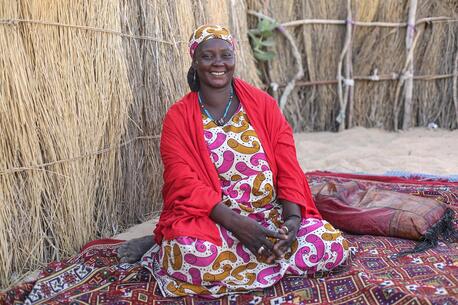UNICEF and Duke to Accelerate 6 Solutions for Better Menstrual Health
The partners will provide resources to startups working to improve menstrual health and hygiene management for vulnerable young women and girls.
The Duke-UNICEF Innovation Accelerator, launched in May 2019, has announced plans to support six social enterprises tackling issues related to menstrual health and hygiene (MHH).
By joining the Accelerator program, the startups will have access to expertise and other assistance they need to build operational capacities and scale their innovations. The projects aim to improve MHH management while also educating communities and eliminating cultural taboos and social stigma around menstruation in general.
Menstruation can be a barrier to girls' education
In many developing countries, as adolescent girls enter puberty and begin to menstruate, they can face an array of challenges at school and at home. These can range from a lack of knowledge about how to manage their periods, to insufficient access to menstrual hygiene products to a shortage of facilities offering privacy and a place to wash, change and discreetly dispose of used menstrual products.
As a result, menstruation becomes a source of stress, shame, confusion or fear. Many girls miss school. Others have difficulty concentrating in class.
UNICEF helped make sure that girls who go to Umwia Primary School, in the Adjumani District of Northern Uganda have adequate washing facilities to make it easier to attend school while they are menstruating. © UNICEF/UNI232820/Bridger
Promising solutions for better menstrual health and hygiene
After a competitive selection process, the following six social enterprises were chosen because of their potential to improve the lives of young women and girls in East Africa through better MHH:
- Lily Health, a mobile chat service currently available in Nairobi, Kenya that answers questions and gives advice about MHH via private, two-way SMS-messaging. The solution, geared to girls in developing countries who have limited access to health care facilities and/or the internet, uses artificial intelligence and machine learning to ensure a personalized experience.
- Kasole Secrets, a startup based in Dar es Salaam, Tanzania working to supply Glory sanitary pads made of bamboo fiber — which is highly absorbent and naturally antibacterial and hypoallergenic — to schoolgirls at discounted prices. As a next step, the group will work to expand its activities into rural and other hard-to-reach communities.
- Oky, the world’s first period tracking app, which UNICEF co-created with girls for girls in East Asia and the Pacific. The app is loaded with MHH information and other content that is culturally appropriate and evidence based. UNICEF Kenya plans to make the app available to girls in Kenya as a first step toward broader deployment across Sub-Saharan Africa.
- SaCoDé (short for Sante Communauté Développement), a Burundi-based startup working to advance MHH education and improved access to MHH products. SaCoDé also makes the Agateka, a washable and reusable sanitary pad that can be worn with or without underwear.

A student demonstrates the Agateka, a reusable pad that can be worn with or without underwear, created by SaCoDé, a Burundi-based startup working to keep sanitary pads and other menstrual products affordable while sensitizing communities around good menstrual hygiene practices. © SaCoDé / Grace Francoise Nibizi
- Tai Tanzania's The Jali Project, an initiative that uses storytelling in the form of animated videos to raise public awareness and change prevailing attitudes and behaviors around menstruation. The videos, which are geared toward adolescents, depict real-life experiences collected from members of the community while providing evidence-based MHH information.
- Tanzania-based Femme International's Twende Initiative, seeking to make quality, reusable menstrual products available, accessible and affordable in local markets. Twende ambassadors are trained to engage at a grassroots level, connecting with community groups and going door to door to sell pads, provide information and offer support; they also help coordinate efforts by local government and other stakeholders to destigmatize menstruation in their communities.

Femme International, based in Tanzania, employs a network of women to disseminate information on managing menstrual health and hygiene and engage the broader community to help de-stigmatize the issue. © Femme International / Florence Akara
For innovators, the issue of menstrual health and hygiene is personal
The majority of those leading this first cohort of projects are African-born women inspired by personal experience. "Through my own challenges with cramps and poor-quality sanitary pads, I knew there had to be a better way," says Hyasintha Ntuyeko, founder of Kasala Secrets Co. Ltd. "But bringing quality pads is not enough to solve the menstrual hygiene crisis." Kasala invests 10 percent of its profits in puberty and MHH education for both boys and girls.
Through the Accelerator program, the entrepreneurs will have access to a multitude of resources — including UNICEF subject matter experts and Duke University faculty and students — as they work to further develop their solutions and increase their reach. They will also be invited to participate in capacity-building webinars and offered week-long residencies at Duke.
Notes Selwyn Rayzor, a Duke alumna who serves on the board of Duke's Innovation & Entrepreneurship Initiative and is chair of the UNICEF USA North Texas & Central Regional Board: "By emphasizing local solutions and putting girls at the center, the Innovation Accelerator cohort will collectively bring much-needed MHH solutions to their communities — and in turn, help empower the next generation to be healthy, happy and educated."
Learn more about the Duke-UNICEF Accelerator and how it aims to help social entrepreneurs acquire knowledge, tools and networks to achieve maximum impact for children and youth.
Top photo: Students from Matero Girls Secondary School in Lusaka, Zambia. © UNICEF/UN0145564/Schermbrucker


